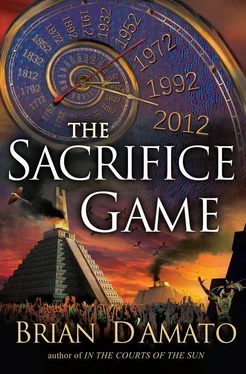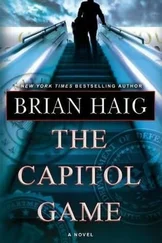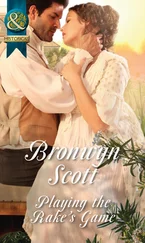Brian D'Amato - The Sacrifice Game
Здесь есть возможность читать онлайн «Brian D'Amato - The Sacrifice Game» весь текст электронной книги совершенно бесплатно (целиком полную версию без сокращений). В некоторых случаях можно слушать аудио, скачать через торрент в формате fb2 и присутствует краткое содержание. Жанр: Триллер, Исторический детектив, на английском языке. Описание произведения, (предисловие) а так же отзывы посетителей доступны на портале библиотеки ЛибКат.
- Название:The Sacrifice Game
- Автор:
- Жанр:
- Год:неизвестен
- ISBN:нет данных
- Рейтинг книги:3 / 5. Голосов: 1
-
Избранное:Добавить в избранное
- Отзывы:
-
Ваша оценка:
- 60
- 1
- 2
- 3
- 4
- 5
The Sacrifice Game: краткое содержание, описание и аннотация
Предлагаем к чтению аннотацию, описание, краткое содержание или предисловие (зависит от того, что написал сам автор книги «The Sacrifice Game»). Если вы не нашли необходимую информацию о книге — напишите в комментариях, мы постараемся отыскать её.
The Sacrifice Game — читать онлайн бесплатно полную книгу (весь текст) целиком
Ниже представлен текст книги, разбитый по страницам. Система сохранения места последней прочитанной страницы, позволяет с удобством читать онлайн бесплатно книгу «The Sacrifice Game», без необходимости каждый раз заново искать на чём Вы остановились. Поставьте закладку, и сможете в любой момент перейти на страницу, на которой закончили чтение.
Интервал:
Закладка:
“Four hundred score dependents each,” he said.
The main bet was always supposed to be chunchumuk, even money, but it was bartered out in a complicated and, I think, kind of artificial way. While he talked, punters and bookies in the audience were already holding up fingers asking for nine-to-two odds against the Harpies, which even I thought was on the long side. I remembered I’d forgotten to get my own bet in and then decided it wasn’t important. The Magister Ludi was about to finish when 2 Jeweled Skull’s herald’s drum sounded. The chanter let the herald take the floor.
The herald said that the Harpies asked to raise the stakes by wagering One Harpy. He meant our first mul and the temple-including the support or family membership or loyalty or service or whatever you’d call it-of One Harpy himself, the founder who’d brought such wealth to our clan over the last nine hundred and fifty-eight solar years. Basically everything we had, including our name.
The side betting stopped. There were a few murmurs in the silence. A crow cawed an alarm far off to the east. Bad sign.
The Ocelots took a few score beats to respond. When they did, their crier said they’d see the bet, but he didn’t stake the Ocelots’ mul and founder. Instead he put up what you could roughly call the equivalent, in loyalty, real estate, hunting and fishing rights, salt works, and slaves. It took forever to list everything, but it didn’t sound fair to me. Still, we accepted it.
There were another eighty beats of expectant silence. I couldn’t see 2 Jeweled Skull but he was probably conferring with his in-house bookies. Finally, he accepted.
The side odds went to seven to four and there was a whole new spate of what they called “hero bets,” durations and spreads on individual players. I figured that about half of the city’s entire year’s economy was going to redistribute based on this one match.
Two pairs of untouchables entered the trench. Each lifted a round-bottomed cylindrical jar of powdered pigment on long tongs and balanced it on the top head-plate of each of the square target pegs.
There were some very complicated rules to hipball, kind of like international ice hockey rules, with a lot of checks and balances in the scoring, but basically a hit on the other side’s target peg was worth a point, and a ball that came up over the top of the peg and either broke the pot or knocked pigment out of the pot scored four points. There weren’t any ring goals on this court, or for that matter on any other that I ever saw in the old days, although they eventually became famous because of the much later court at Chichen Itza, which of course became a tourist attraction in the twentieth century. Which supposedly they gave James Naismith the idea for basketball. Sometimes players practiced by knocking the ball through a big wooden hoop that they rolled on the ground. But using rings in the ball game itself must have started later. Anyway, the first side to score nineteen points won. But-weirdly, but maybe not coincidentally, almost like in modern Ping-Pong or tennis-you had to win by three points. And just like in those games you could go back to “deuce” indefinitely. If you faulted the ball over your own rear goal line, a point went to the other side. You didn’t switch sides. Each team had two substitute players, but that was it, and if more players got knocked out of the ball game it came down to last-man-standing.
DOOOONG.
A brace of bearers brought in the doeskin-wrapped ball Hun Xoc had brought back from 31 Courts, holding the too-potent bundle with wooden hands, and tied it to the service cord. An umpire inspected the knot, signaled, and the ball was hoisted up, hanging above the central marker stone.
“Now, One, Two, Four, Five, Seven, Nine, Thirteen,” the Magister Ludi chanted, switching from the second-person plural imperative to the apostrophic tense you used only when speaking to gods,
“Now Twenty, Fifty-Two, Two Hundred Sixty,
O Night, O Wind, O Day, O Rain, O Zero,
Now, guests, inspect 2 Creeper’s blood-boiled head.”
2 Creeper had been the greatest Ixian ballplayer in living memory, but he’d sacrificed himself thirty-nine solar years ago after an ankle sprain. The Ball had been wound out of white latex around 2 Creeper’s cranium as a hollow center-to increase the bounce-and then baked black and studded with painted thorns, like little nails. Finally the ball had been purified in two kinds of blood and then washed in original water boiled over the offering fires of both houses’ grandfathers-nests. It was bound on a little below its equator by thirteen turns of a multicolor-stranded rope, and as the last of the ribbons dropped off, the service cord began to unwind. I smelled that old fight-or-flight charge building up in the players around me, joints quivering ever so slightly, weight shifting, glands shooting that rich watch out cortisol mixture into spinal cords no matter what kind of kamikaze ethic their upper brains had been washed in.
“Li’skuba hun,” the chanter called. “Ready for Ball One.”
The sunlight clicked behind the mul, but guava light reflected into the court off the eastern roof-combs like they were vertical lakes. They wouldn’t set torches for over thirty-score beats. The bookies called last bets and then hushed up. The right strikers tensed their muscles for their springs, front feet ready to disengage from their lines at the sound of the ball striking the central marker. There were four beats of global motionlessness as the spotter watched the dying sun.
There were thirty-nine beats of silence.
He held up his hand, and, delicately, brought it down in a cutting motion.
There was a stirring and an intake of breath in the crowd. The Magister cut the end of a taut cord attached to the railing of his chair. The end of the cord seemed to dart away from him like a blue racer, and it whistled down to the court and up through three different loops to the ball-sac and the ribbons around the ball uncoiled and fell to the side, exposing the dark sphere. In proportion to our body size it was about as big as a basketball. Knocking it around with your bare flesh was like playing hackysack with a cannonball, and if you got off balance the ball could maim or kill you.
The untouchables scurried out of the court. The referees stepped behind the end-zone line. The rope unraveled faster and faster and just as the ball began to free itself the Magister Ludi called out “PIIITTZOOOHHM PAAYYEEEE EEEEEEEEEEEEE!!!” which I guess the closest thing to in English would be “PLLL- AAAAAAAAAAAAAAAY BALL!!!!!
(34)
The knot unraveled, but the ball seemed not to fall but to hover for more than a moment and then to sink reluctantly into the thick air, slowly accelerating down into the round central marker, building up to real speed in the last arm of its fall, and then there was a hollow CHUHN!!! the sound marking the exact demarcation between yesterday and today for all Ixian historical time.
“Chun,” the cantor called almost simultaneously with the sound. In ball language chun was the word for base or “trunk” or “root,” since the markers were sections of branches of the tree path to Xibalba. So the cantor’s play-by-play was kind of like Yoruba talking pressure-drums, it both imitated the sounds of the ball game and gave out names and moves and positions, and the whole rap radiated out from the court in a widening circle. Listening to the city was like hearing hundreds of big antique radios picking up a broadcast through some thick medium that slowed it down to much less than the speed of sound.
Before you could see the black sphere rise off the marker the right-hand strikers had already closed in, Hun Xoc from our side and Emerald Immanent from the west. The ball drooped down again into their double blur and you heard flesh slapping on flesh and then the crisp hollow sound of the ball on a hollow yoke. The head cantor shouted, “ Bok!” the ball word for “yoke,” or “bone” or “horn.” The word was so close to the actual sound that it seemed like one of the echoes off the sloping banks, as the batteries of criers relayed the call out into the suburbs and hamlets and out the roads far through the hinterlands. Village adders memorized it at the first hearing. Troupes of hipball-adders interpreted it based on where the hit came from, by whom, on what beat, and a hundred other considerations, and the human reverberations rippled through signal- and runner-relays out through IX and Ix’s four hundred towns and beyond, out to the corners of the four quarters and up and down to the buds and roots of the Big Tree, the Tree of Four Hundred Times Four Hundred Branches. But of course here the ball-time was moving on ahead, and before the echo had gotten to the second relay circle, beyond the court district, the ball had angled up and hit the Harpies’ goal peg, and there was a wide liquid clap on the huge clay-cylinder scoring drum. The cantor shouted, “ T’un!” which imitated the sound of the ball on the hollow peg but was also the word for “point.”
Читать дальшеИнтервал:
Закладка:
Похожие книги на «The Sacrifice Game»
Представляем Вашему вниманию похожие книги на «The Sacrifice Game» списком для выбора. Мы отобрали схожую по названию и смыслу литературу в надежде предоставить читателям больше вариантов отыскать новые, интересные, ещё непрочитанные произведения.
Обсуждение, отзывы о книге «The Sacrifice Game» и просто собственные мнения читателей. Оставьте ваши комментарии, напишите, что Вы думаете о произведении, его смысле или главных героях. Укажите что конкретно понравилось, а что нет, и почему Вы так считаете.












